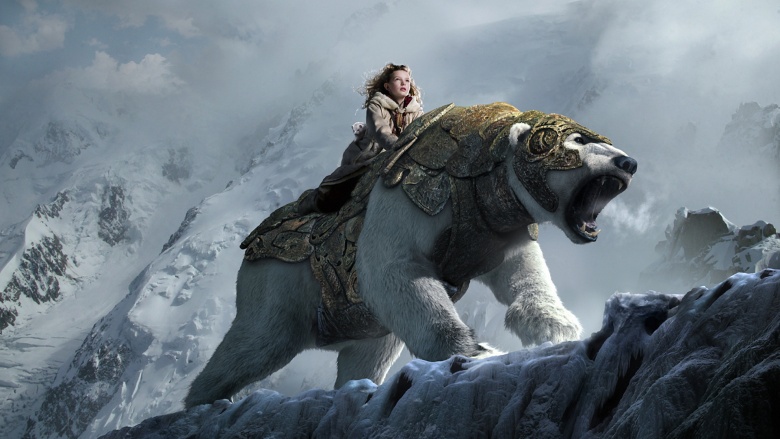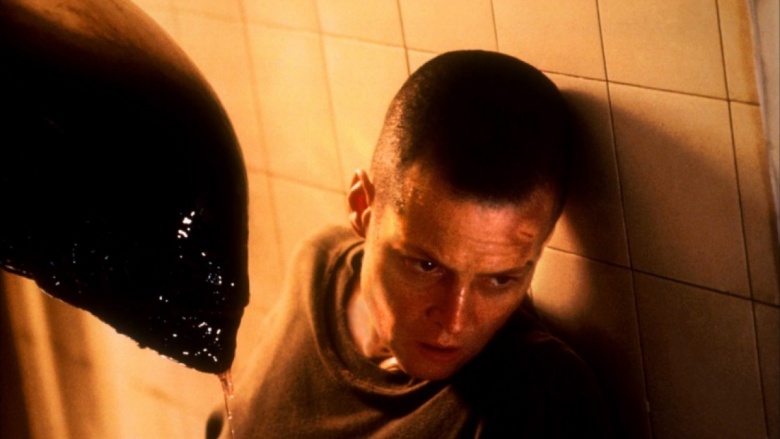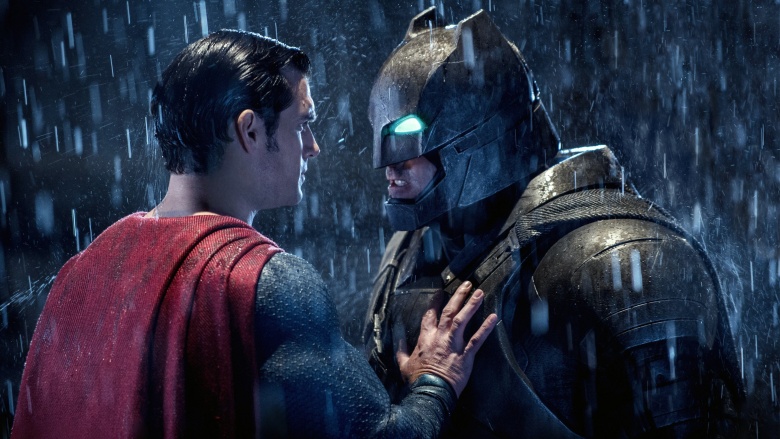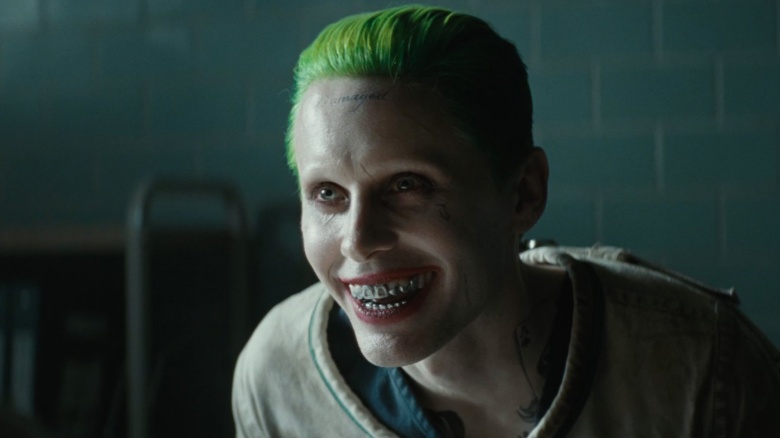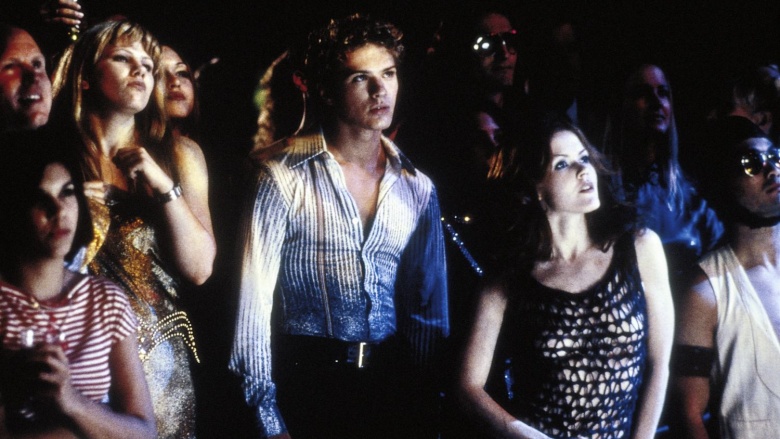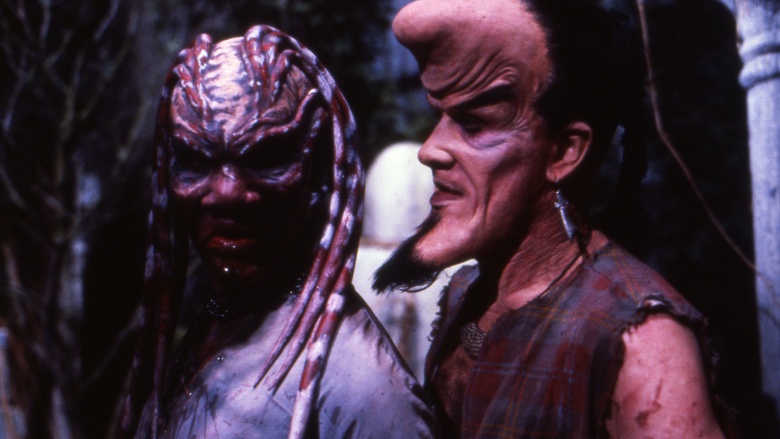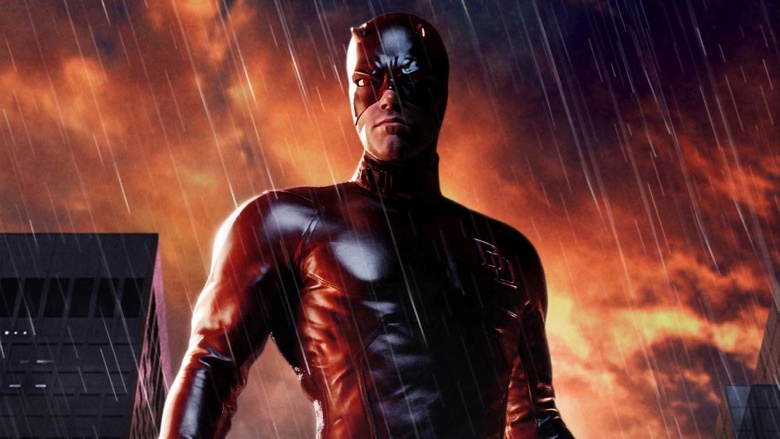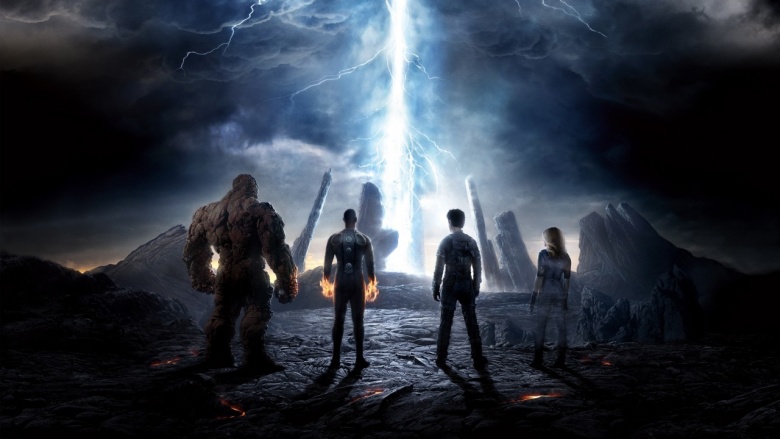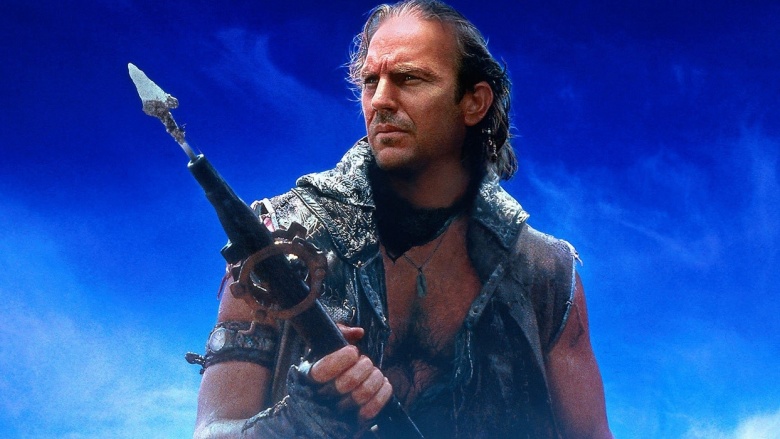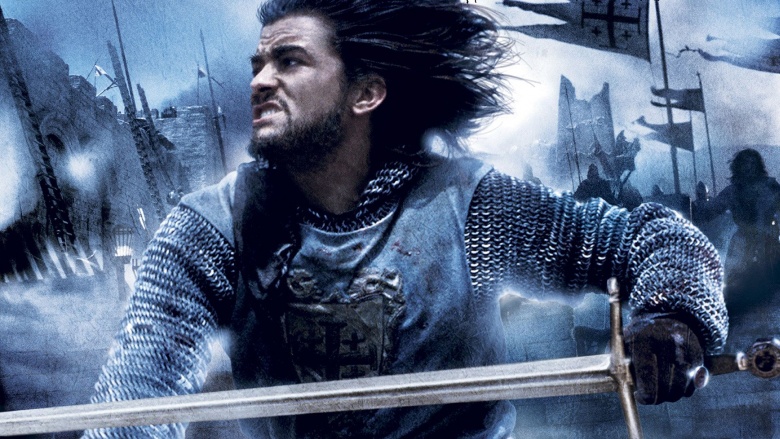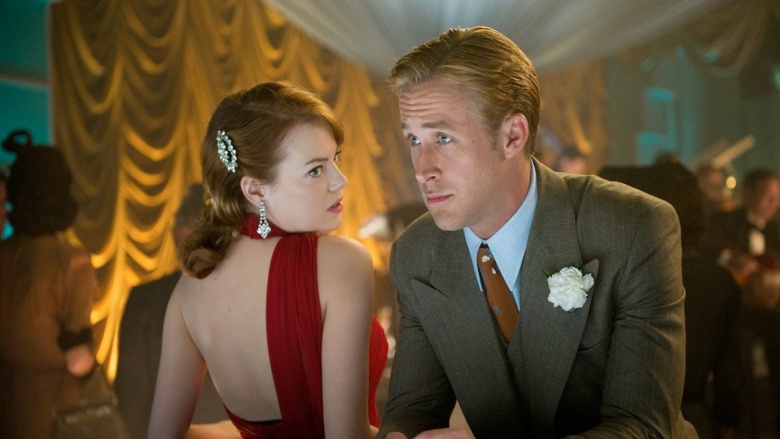Movies That Were Ruined By Deleting Pivotal Scenes
It's always good to have more than you need, and that principle holds true for filmmaking too. Every film has its fair share of deleted scenes—and while most of the time they tend to be inconsequential to the overarching narrative, from time to time, a movie can actually be ruined by leaving the wrong moments on the cutting room floor. Here's a look at some major releases whose editing put a major dent in audiences' enjoyment.
The Golden Compass (2007)
Nowadays, it seems like every blockbuster movie is intended to launch some form of series, franchise, or shared universe—especially in the fantasy genre. After the astounding critical and commercial success of Peter Jackson's The Lord of the Rings trilogy in the early 2000s, New Line Cinema tried to recapture that glory with another fantasy trilogy: Philip Pullman's Her Dark Materials.
The studio hired screenwriter Chris Weitz to helm an adaptation of the first novel in the trilogy, The Golden Compass, starring Daniel Craig, Christopher Lee, Nicole Kidman, and newcomer Dakota Blue Richards. But as with most blockbusters, the film went through several controversies and production hurdles.
Fans of the trilogy found fault with Weitz, who had chosen to exclude the novel's anti-dogmatic themes by addressing them euphemistically. The film lost the novel's essence along the way, and was widely ridiculed for softening a major component of the story in order to cater to a wider audience. Furthermore, in order to accommodate a shorter runtime, Weitz had to cut out an estimated hour from his original screenplay (mostly scenes featuring the protagonist, Lyra). Unsurprisingly, this would-be trilogy was halted after a single chapter.
Alien 3 (1992)
David Fincher has enjoyed a prolific and distinguished career in Hollywood, directing films such as Fight Club, Zodiac, and Gone Girl, but his directorial debut, Alien 3, was anything but auspicious. As the third installment in the Alien franchise, Alien 3 was burdened with high hopes, particularly following its two critically and commercially successful predecessors.
Despite earning mixed-to-negative reviews, Alien 3 was moderately successful at the box office, grossing approximately $160 million worldwide. Still, after James Cameron's award-winning sequel, Aliens, Fincher's installment seemed like a setback for the franchise. Perhaps that played a part in the studio putting together an extended cut of the film—known as the Assembly Cut—over a decade after it arrived in theaters. The problem? They did so without Fincher's involvement.
The Assembly Cut included an additional 37 minutes of footage, expanding on several plot points and altering various scenes. Even though the extended version of the film is regarded as mildly superior to the original, many people—including Cameron and actor Michael Biehn—have expressed dissatisfaction with the liberties the film takes with the franchise and its characters.
Batman v Superman: Dawn of Justice (2016)
There's no denying that the DC Extended Universe has been successful at the box office. However, there's also no getting around the critical brickbats that have greeted these movies, starting with Zack Snyder's contentious Man of Steel and continuing with its follow-up, Batman v Superman: Dawn of Justice, the latter of which truly launched the aforementioned shared universe.
Audiences and critics criticized Batman v Superman primarily for its haphazard editing and resulting confused plot, neither of which were the byproduct of runtime constraints. Even at 151 minutes in length, many people felt several plotlines and character arcs were underdeveloped. And knowing that the film's editor, David Brenner, had confirmed that the original cut was almost four hours long, some felt the studio was cheating them out of a completed version.
Shortly after Batman v Superman's release, the studio confirmed they would be releasing an R-rated Ultimate Edition, which added an additional 30 minutes of unseen footage. Those who disliked the theatrical cut for its story or tone likely wouldn't change their minds after viewing the Ultimate Edition. However, critics have said the extended version is a drastic improvement, expanding upon Lex Luthor's role and Clark Kent's investigation.
Suicide Squad (2016)
After the critical disparagement of Batman v Superman: Dawn of Justice, audiences hoped David Ayer's Suicide Squad would be a turning point for the DC Extended Universe. Unfortunately, it was ridiculed too—and for some of the same reasons. That's not to say the movie wasn't successful: it broke numerous box office records and grossed over $745 million worldwide, despite not being released in China.
Leading up to the movie's release, various trailers showed several scenes that didn't make the final cut. Although he doesn't have many scenes in the final cut, Jared Leto claimed to have filmed an entire movie's worth of footage as the Joker. And considering that Batman's arch-nemesis was a big draw for audiences, many people were disappointed when the filmmakers relegated him to the background—so much so that some fans have attempted to sue the studio.
In response to the backlash, Warner Bros. opted to release an extended cut of Suicide Squad featuring an additional 11 minutes of footage, consisting mostly of the aforementioned Joker scenes. However, unlike Batman v Superman, the Suicide Squad extended cut wasn't rated R.
54 (1998)
In 1998, Mark Christopher's critically panned 54, a drama about the world-famous New York City nightclub of the same name, barely managed to make a dent in Hollywood. Starring Ryan Phillippe, Neve Campbell, Salma Hayek, Mark Ruffalo, and Mike Meyers, the film meant to encapsulate the club's legendary hedonism; unfortunately, Christopher's vision never made it to the big screen.
Problems started when Miramax screened the film for random audiences and received negative criticism. In doubt, they cut 40 minutes out of the film and ordered an additional 30 minutes of reshoots. The result was unrecognizable: Phillippe once said, "I've never seen this kind of editing and reshooting on another film I've done. The characters were fundamentally changed in a way that wasn't true to the original script. Not even close." Christopher partially blames the test screenings for Miramax's choice to recut and reshoot the film, saying, "They didn't test it in the cities (where the audience for a dark, edgy indie movie would be); they tested it out in malls in Long Island and places like that."
Thankfully, in 2015, after years of bootleg versions of the film playing at various festivals, Christopher's original cut of the film was released to acclaim in 2015.
Nightbreed (1990)
The horror genre arguably has more cult classics than any other—and Clive Barker's 1990 fantasy horror film, Nightbreed, is one of them. Based on the director's 1988 novel Cabal, the movie follows mental patient Aaron Boone, who believes he is a serial killer, as he runs from the police and joins a group of recluse monsters known as the Nightbreed.
Since he wrote both the source material and the script, Barker had a clear vision, one 20th Century Fox executives didn't share. The studio pictured a slasher film with scary monsters, and that wasn't what Barker delivered with his protracted, two-and-a-half hour cut. In response, the studio ordered a series of reshoots and cut almost an hour out of the final product.
In the end, all of that, coupled with an inadequate marketing strategy, led Nightbreed to critical and commercial failure. It wasn't until 2014 that a director's cut saw release, running 20 minutes longer than the theatrical version and featuring 40 minutes of altered or unseen footage. Although the director's cut significantly improves upon the theatrical version, the film had already achieved cult status among hardcore horror fans.
Daredevil (2003)
Ben Affleck is a huge star and an award-winning director, but he's made his share of wrong moves—including starring in director Mark Steven Johnson's Daredevil, which curtailed his chances at headlining another superhero film for over a decade.
Daredevil received mixed-to-negative reviews during its theatrical run, but was still moderately successful, becoming the second highest-grossing February release at the time. Shortly after the movie's theatrical run, Johnson put together a director's cut, which saw release the following year. It included additional footage previously unseen, as well as an entire subplot starring rapper Coolio as a drug addict. The director's cut went unnoticed by most people, though some who saw it agreed that it turned what once was a mess into a compelling story.
Marvel Studios president Kevin Feige, who served as producer on the film, has gone on record saying, "I think...the people who had other opinions will be won over by this new version." Perhaps if Johnson's cut of the film released in theaters instead, moviegoers might have had a different opinion of Affleck when Warner Bros. cast him as the new Batman.
Fantastic Four (2015)
Daredevil wasn't the only superhero movie to undergo significant, lamentable changes at the hands of 20th Century Fox. In 2015, Josh Trank's Fantastic Four released to overwhelming critical discontent, with the movie winning Golden Raspberry Awards (a.k.a. Razzies) for Worst Director, Worst Remake, Worst Screenplay, and Worst Picture. The movie even failed to recoup its estimated production budget of $120 million.
Much of the film's issues have been pinned on Trank, though he has alleged an exceptional cut of the film does indeed exist. One day prior to the movie arriving in theaters, Trank took to Twitter and responded to the critical backlash, saying, "A year ago I had a fantastic version of this. And it would've received great reviews. You'll probably never see it. That's reality though." Although many people would consider Trank's tweet to be the rumblings of a disgruntled director, Toby Kebbell, who plays the villain Doctor Doom, attested to the same thing, telling The Daily Beast, "I tell you, the honest truth is, [Trank] did cut a great film that you'll never see. That is a shame. A much darker version, and you'll never see it." Fox, in response, claims to have supported Trank's vision the entire time.
Waterworld (1995)
The '90s was a decade overshadowed by apocalyptic films like Armageddon, Independence Day, and Terminator 2: Judgement Day, but not every entry in the genre achieved critical acclaim and/or box office glory. Kevin Reynolds' post-apocalyptic film Waterworld, famously starring Kevin Costner as the Mariner, didn't quite grab that brass ring.
Heavily inspired by George Miller's Mad Max franchise, screenwriter David Twohy described Waterworld as being "The Road Warrior on water," supported by the fact that both movies share the same cinematographer: Dean Semler. But unlike that low-budget classic, Waterworld was riddled with costly production woes and went down as the most expensive film ever made at the time, racking up an estimated $235 million with marketing costs included. When production finally concluded, Waterworld's runtime was reportedly almost three hours long, but the theatrical cut clocked in at just over two—and the results weren't particularly inspiring for critics or audiences.
Reynolds later restored his original cut for Waterworld's broadcast premiere on ABC. The extended version, which adds an estimated 45 minutes of footage, isn't a masterpiece, though it's still better than the theatrical cut.
Kingdom of Heaven (2005)
After spending a few years making modern-era movies, legendary director Ridley Scott returned to making period pieces with his 2005 epic Kingdom of Heaven, starring Orlando Bloom, Alexander Siddig, and Eva Green. Centering on the 12th Century Crusades, Kingdom of Heaven follows Bloom's character, Balian of Ibelin, as he travels to and defends the Kingdom of Jerusalem from the Ayyubid sultan, Saladin, and his army.
Scott and screenwriter William Monahan always perceived the movie to be a historical tale banking on religious intolerance and authentic warfare, whereas executives at 20th Century Fox wanted a straightforward action-adventure flick with a romantic subplot. After previewing the film to test audiences, as well as Fox executives, then-studio head Tom Rothman forced Scott to cut 45 minutes off the runtime, arguing no modern audience would sit through a three-hour movie.
The truncated theatrical cut received mixed-to-negative reviews, but was a mild success at the box office. Unhappy with the released version, Scott oversaw editing of a 189-minute director's cut that was released to critical acclaim the following year.
Gangster Squad (2013)
Following the success of his directorial debut, Zombieland, and his follow-up comedy 30 Minutes or Less, Ruben Fleischer opted to make a more ambitious film, one that would be rooted in history. Gangster Squad—based on the Paul Lieberman novel Tales from the Gangster Squad—follows a newly-formed unit within the Los Angeles Police Department, that wages a secret war against Mickey Cohen and his gang.
Featuring an all-star cast that included Ryan Gosling, Josh Brolin, Sean Penn, Nick Nolte, and Emma Stone, Fleischer's period crime drama looked like a surefire hit for the studio, but two months prior to the scheduled release date, a shooting occurred inside Dark Knight Rises screening at a theater in Aurora, CO. Warner Bros. had been running trailers and TV spots for Gangster Squad that featured glimpses of the film's primary action sequence—a bloody shootout inside the Grauman's Chinese Theater in Hollywood. Deemed insensitive, the studio pulled the trailers, delayed the film, and ordered a series of reshoots to replace the movie theater sequence with one set in Chinatown. Whether leaving the movie as is might have improved its eventual fate we'll never know, but the new footage certainly didn't help.

